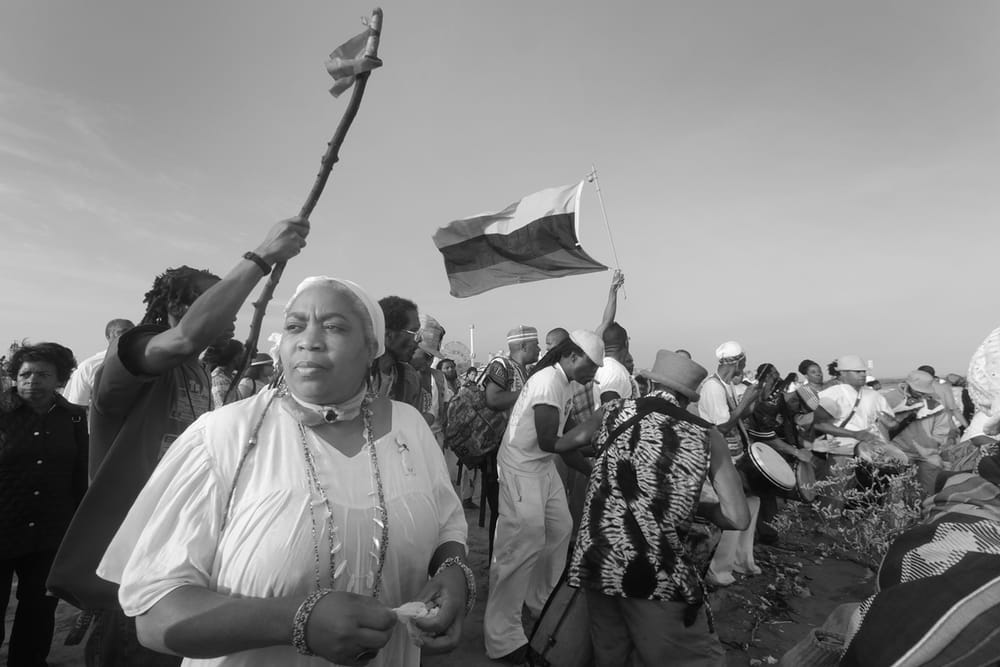By Nehemi'EL Ibrihim-Simms
The dominant narrative of the Maafa starts with the arrival of Western Europeans on the coasts of West and Central Africa. Upon arrival, the narrative goes on to say that Europeans encountered a seriously primitive and disorganized population of native people. Due to this disorganization they were able to raid villages, and capture African people, marching them back to the coast where they would be put upon ships to be taken to the Americas and worked.
Such a historical idealism creates conceptual blind spots about where we place our resources, form alliances and friendships in the present moment. The problem with this narrative is that it prioritizes the damage done by the Western Europeans, taking the other elements that inhibited the original trajectory of African civilization and subordinating them to the influences of the West or discarding them altogether.
If the dominant narrative stratifies the development of our underdevelopment to a clash with one civilization and denies the dynamism of the variables involved, then our diagnosis of contemporary ills will be lopsided as well. The southern expansion of the Romans, and effectively what would become the West, was halted by the Meroitic soldiers under the command of Amanirenas. Western Europe would have no comprehensive knowledge of Africa and its interior until the British conquered.
The effect of Islamic extremism on African civilization. There must be a global and civilizational response to this critical threat. The primary colonial agent of Traditional African Society characterized by groups of African people observing the principle of the transmigration of the soul, animism, and other pre-Abrahamic cultures and their corresponding socio-political institutions and structures, is the conglomerate of Persians, Arabs, and Turks, through their political machine known as "political Islam."
One of the earliest conflicts between the two civilizations, and one that can be argued to be at the root of the instability of the Western Sudanic region, came with the standoff between Ghana and the Almoravids in the 10th century. The advent of Islam, spread by war, trade, and cultural diffusion, much like Western Europeans' use of Christianity, presented serious pressures on Traditional Africa, causing political and economic instability and mass migrations, which are at the root of the major political reformations and rise of state systems.
In this paper, we attempt to restore the nuance of the discussion of our Maafa and influence political thought concerning contemporary geopolitical conflicts. How did groups like the Fulani, Sereer, and Mandinka become Muslims? How did the frontier represented in image number three develop?
In the present moment, the reality facing African people is anything but simple. We are facing many challenges on different levels at the same time. And since we are a colonized people, our ability to control the narrative surrounding our predicament is challenging. Institutions like the media, the public, and higher education systems are controlled by a class that has different and oftentimes contradictory interests to those that would be consistent with the survival and development of African civilization. As a result, all too often, the dominant narrative stratifies the development of our underdevelopment to a clash with one civilization and denies the dynamism of the variables involved. The result debilitates the potential of discourse. As a result, our diagnosis of contemporary ills is ill-equipped to mitigate issues. Such a historical idealism inhibits the conceptual growth of our movement, creating challenges for planned development.
The dominant narrative of the Maafa reflects such a historical idealism. This idealistic narrative frames the exploits of Western Europe as some kind of Herculean effort resulting from technological ingenuity and intellectual renaissance. Beginning with the arrival of "conquering" Western Europeans to faceless West and Central Africa – and to the Americas – guns-blazing, with silver breastplates glistening in the sun. From this posture, Cortez overthrew the Aztec Empire with 508 men; Pizarro got the best of Atahualpa because of his Spanish cunning; Columbus "civilized" the backward inhabitants that he encountered; European traders raided the unattended villages of the savage tribes of Dark Africa, ultimately capturing and expropriating 11 million nameless "slaves" to the "New World."
Narratives such as these misrepresent the complexity and dynamism of historical processes and the forces that led to them and are ultimately responsible for the current civic and political sludge we, as Pan-African Nationalists, find ourselves in. Myopic narratives characterized by terminology like "New World," "slaves," "tribes," and "conquer" also serve to reinforce the colonizer's intellectual paradigm and secure their psychological victory. These narratives disfigure the contours of discourse and discolor the emotional tone of those of us involved in movement activity.
Here, we intend to present an alternative narrative. The creation of modernity – the current paradigm of the geopolitical landscape under the thumb of late-stage capitalism, that is, monopoly capitalism – is, in fact, the result of a multi-polar interaction that includes Western Europe, Political Islam, and Traditional Africa. We propose this explanation of modernity's creation as opposed to the seed of eurocentric discourse planted in the fertile soil of the Western European self-obsession with their "Renaissance, Reformation, and Enlightenment" that only serves to reinforce the intellectual and psychological hegemony of European superstition and culture. Our challenge is to find a better way to interpret and understand the history of the development of our Maafa and use such an understanding to better determine our present best interests. The multi-ethnic imperialism operating through the advent of "Political Islam" has a special relationship to the development of the Maafa. Unfortunately, it is an under-represented narrative with ramifications that play significant roles in the contemporary world and, in our estimation, inhibit any meaningful development of African people toward controlling their own affairs.
Arabs, in particular, and the civilization of Islam, in general, have played a serious role in the development of the modern world. This includes the shaping of the ethno-religious landscape of the African Continent, which translated to the Trans-Saharan and Trans-Atlantic Slave trades, leading to an ongoing process of Globalization. The world of Islam has also given much to the development of modern mathematics and physical science, as well as the shape of the geopolitical sphere has been determined in large degree by the Arabs.
Furthermore, to tell the history of Europe's creation – least of all its "exploration" of the world – as well as the state in which the West encountered African civilization on the Western and Central regions of the Continent would be incomplete without understanding "Political Islam." Thus, without factoring the phenomena and behavior of "Political Islam" into our method of analysis, the myth of the inherent European ingenuity stands, leading our Global Movement towards pan-Africanism and the African Renaissance towards dangerously incomplete and incorrect conclusions, and implying grave ramifications for any subsequent contemporary moves.
And what of the contemporary state of Africa? How do we explain the 15,000 killed and 8.3 million displaced by the Sudanese conflict beginning on 23 April 2023? How do we account for 77 percent of the total report of violent events across Africa being militant Islamic violence? Without this variable, how do we explain the creation of the Alliance of Sahelian States, the most recent reorganization of West African polities in the last 20 years?
What is most critical in this juncture of the history of our Maafa (we are still enthralled in our Great Suffering) is clearheadedness, which only accompanies honesty about what happened to us. What damages this clearheadedness in significant ways is the narrative that prioritizes the damage done by the Western Europeans, taking the other elements that inhibited the original trajectory of African civilization and disregarding them.

